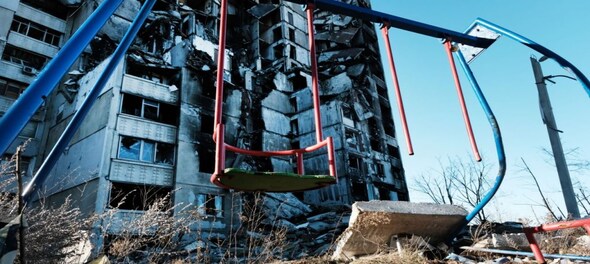
One year since Russia’s invasion of Ukraine, the war is entering a critical phase. Western governments have agreed to supply Ukraine with battle tanks in anticipation of heavy fighting this spring. Such weaponry is essential to the country’s defense, but sustaining the war effort will also require greater attention on another front: Ukraine’s devastated economy.
It’s hard to overstate the war’s economic toll. Ukraine’s economy shrunk by more than 30 percent in 2022. One-third of the country’s 44 million people have been displaced; more than 8 million have left the country. Tax revenues have collapsed, and spending has been diverted to essentials. Poverty rates have soared and will increase further as the war drags on.
Since the start of the conflict, the government of President Volodymyr Zelenskiy has relied heavily on foreign assistance to pay public-worker salaries and maintain basic services. The danger now is that the make-do policies of the last year are not sustainable. With a government deficit running around $5 billion per month (about 30 percent of the country’s monthly gross domestic product before the war), the National Bank of Ukraine has had little choice but to print money. War bonds help, but the coupon is too low to attract enough buyers. Even with interest rates at 25 percent, conventional economic policy has struggled to contain inflation, now running over 26 percent.
On its current trajectory, without a fresh infusion of aid, the country faces the likelihood of a currency crisis, hyperinflation or both. Meanwhile, Russian President Vladimir Putin’s forces continue to target the country’s infrastructure, from hospitals to the energy grid, in an effort to disrupt economic activity, destroy public morale, and undermine the stability of Zelenskiy’s government.
While foreign donors have pledged more than $50 billion in financial assistance to the Ukrainian government (apart from military and humanitarian aid), support among Western publics for such largesse won’t last indefinitely. That’s all the more reason to give Ukraine the resources it needs now.
A multi-year aid package of up to $16 billion from the IMF could encourage other public and private creditors. It’s also important that Europe take the lead and deliver on its promises. Ahead of Friday’s EU-Ukraine summit in Kyiv, European Commission President Ursula von der Leyen pledged unconditional support for Ukraine, which is a candidate for EU membership. But EU institutions by late last year had disbursed only 26.7 percent of pledged budgetary support, compared to 60.4 percent for the US. What’s more, the bloc’s €18 billion aid package announced last November comes in the form of loans — which, however favorable the terms, simply add to Ukraine’s enormous debt pile, creating a burden that will hamper immediate rebuilding needs and future reconstruction.
Going forward, Western financial and reconstruction support should preference grants over loans, as with the rebuilding of Germany after World War II. Customs-free access to the EU for Ukrainian exports, among other trade easements, would also help.
At the same time, aid should come with the right conditions. The EU should continue to insist that Ukraine crack down on corruption and push ahead with efforts to improve governance. Zelenskiy’s recent purge of officials reflects the constant need to tackle graft in a country where it was rife before the war, but also the government’s commitment to root it out. The EU should focus on strengthening Ukraine’s institutions and ensuring that Kyiv follows through with promised judicial and anti-corruption reforms. (It would help the EU’s case if the European Parliament cleaned up its own corruption problems.)
Military support for Ukraine has rightly been viewed as an investment in the West’s security as well. But wars aren’t won on the battlefield alone. Stabilizing Ukraine’s economy is critical to overcoming Putin’s aggression and helping the country stand on its own.
(Edited by : Soham Shetty)
Check out our in-depth Market Coverage, Business News & get real-time Stock Market Updates on CNBC-TV18. Also, Watch our channels CNBC-TV18, CNBC Awaaz and CNBC Bajar Live on-the-go!


Lok Sabha Election 2024: Gurugram gears up for crucial polls amidst economic boom and civic woes
Apr 24, 2024 11:41 PM
Lok Sabha Election 2024: Crucial seats up for grabs as Rajasthan, Maharashtra, Bihar gear up for 2nd phase of polls
Apr 24, 2024 11:40 PM

